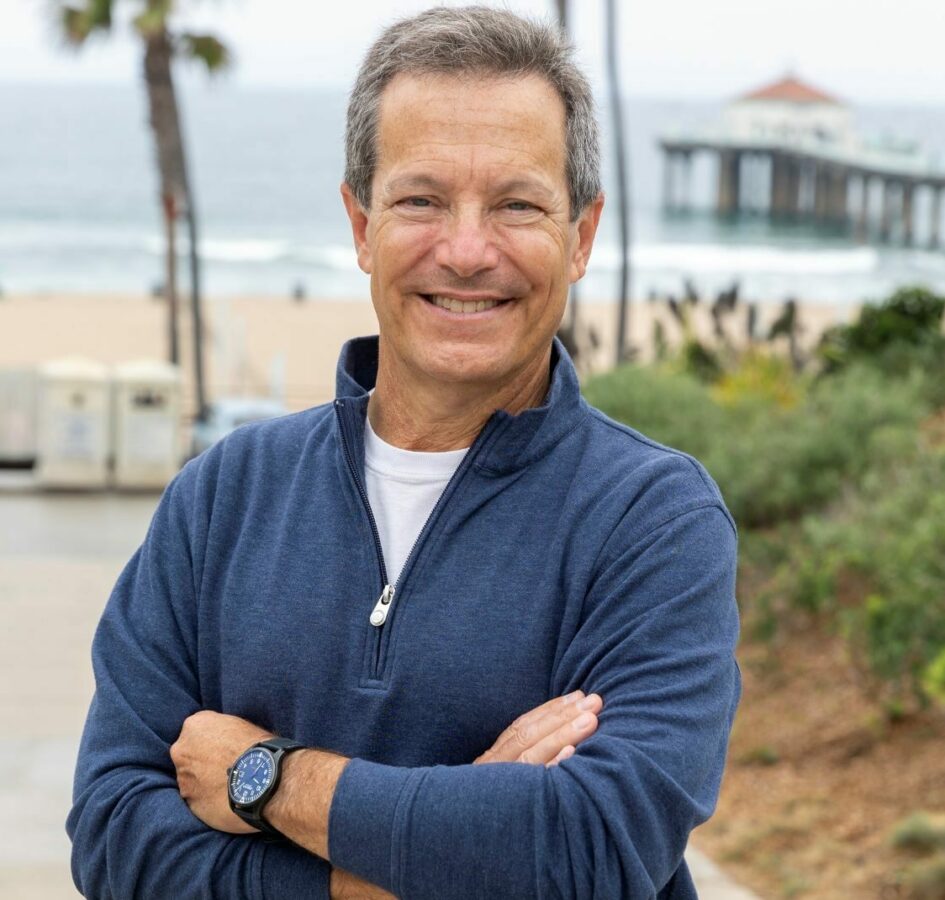by Mark McDermott
David Lesser served eight years on the City Council, ending in 2019. Before that, he served a year on the Parking & Public Improvements Commission and six years on the Planning Commission. He also served on the LA County Library Commission, a role in which he proved particularly instrumental — along with Mayor Steve Napolitano, who was then Supervisor Don Knabe’s deputy — in the transformation of the Manhattan Beach Public Library.
Lesser has a long list of accomplishments he can point to during his time in public service, but there is one easily overlooked detail. He never missed a single meeting of any of the legislative bodies he served on. Lesser was indefatigable. He always showed up, and his attention never wavered. Afterward, he tended to defer credit to his colleagues.
“Whatever successes I’ve had have been team efforts,” Lesser said in 2019, as his last council term ended. “I mean it; one person can’t just come in, and by fiat say it’s going to be this way or that way. You’ve got to work with your council colleagues, and obtain community input.”
One of those team efforts came near the end of his final term when a Los Angeles councilman enacted a “road diet” that reduced Vista del Mar to single lanes, and resulted in massive traffic jams during morning, and evening commuting hours. It wasn’t, technically, an issue within Manhattan Beach’s purview, but those commuting from town were suddenly losing hours of their lives stuck in traffic.
His colleague Richard Montgomery took the role of “rock thrower,” publicly taking on the LA Councilman. His colleague Amy Howorth had connections with the councilman’s staff and worked that angle. Lesser, an attorney, worked with other regional leaders to negotiate. The collaborative effort bore fruit, and the road diet was brought to an end.
When he left office, Lesser had no plans to ever run for elected office again. But it is exactly this kind of teamwork he no longer sees on the City Council, and this is the main reason why he is running again.
“I really do want our city to get back to a more productive council, and it starts with collaboration,” Lesser said. “It starts with respect for different viewpoints, and then trying to identify where there’s common ground. I was happy to not take the credit. I was happy for it to be a group endeavor. Then you begin to build trust with your colleagues. You don’t have to be the bright, shiny object. Everybody looks good, because at the end of the day, this is what I think it should be about — our community, and serving everybody.”
“I just have not seen enough of that dedication to overcoming differences,” Lesser said. “Without this, I don’t think we would have our library. I don’t think we’d have had the positive results regarding Vista del Mar. There are a huge number of current problems that lend themselves to that type of leadership.”
One of those is the City running up against state housing requirements. The state, in addressing its housing shortage, has taken legislative action that imposes housing on cities. Lesser said the way to address such problems is to be proactive.
“The state housing mandates take away our local control and our ability to keep our local character,” Lesser said. “My hope is to be more proactive in addressing future projects. They don’t all have to be such large scale, intensive projects for us to meet our housing obligations.”
Similarly, Lesser believes the City needs to be proactive in addressing the impacts of climate change. Again, the answer is community collaboration, Lesser said. He served as co-chair of the City’s Environmental Task Force.
“We came up with a whole range of practical ways for people to limit their water usage, particularly with our landscapes,” Lesser said. “We had everything from free mulch being available at the City Yard to a list of private landscape contractors who could give advice. So there was a partnership. This was a benefit for the local businesses that did this kind of work, but it also brought the community together. And that’s something that I’m looking for, which is coming up with shared goals, moving forward to address these physical problems.”
Lesser has priorities beyond environmental issues, such as completing the Scout & Senior Community Center, re-addressing the City’s disaster preparedness, fully funding the police department, and maintaining balanced budgets. But like his approach to environmental issues, Lesser’s solutions tend to be grounded in details, few of which make great sound bites, and all of which involve people working together towards a much larger common goal.
“I would say right now there is a lack of agreement on what it means to move forward with addressing climate and sustainability issues,” Lesser said. “It’s not that I want to take radical steps. I want to acknowledge that we have an issue that’s going to impact all of us that will affect us in practical ways. We should be proactive. A number of initiatives that were being explored have come to a halt. It takes leadership. I’m proud to have been on a council that really sought to take proactive measures, common sense measures, to address environmental challenges.” ER










